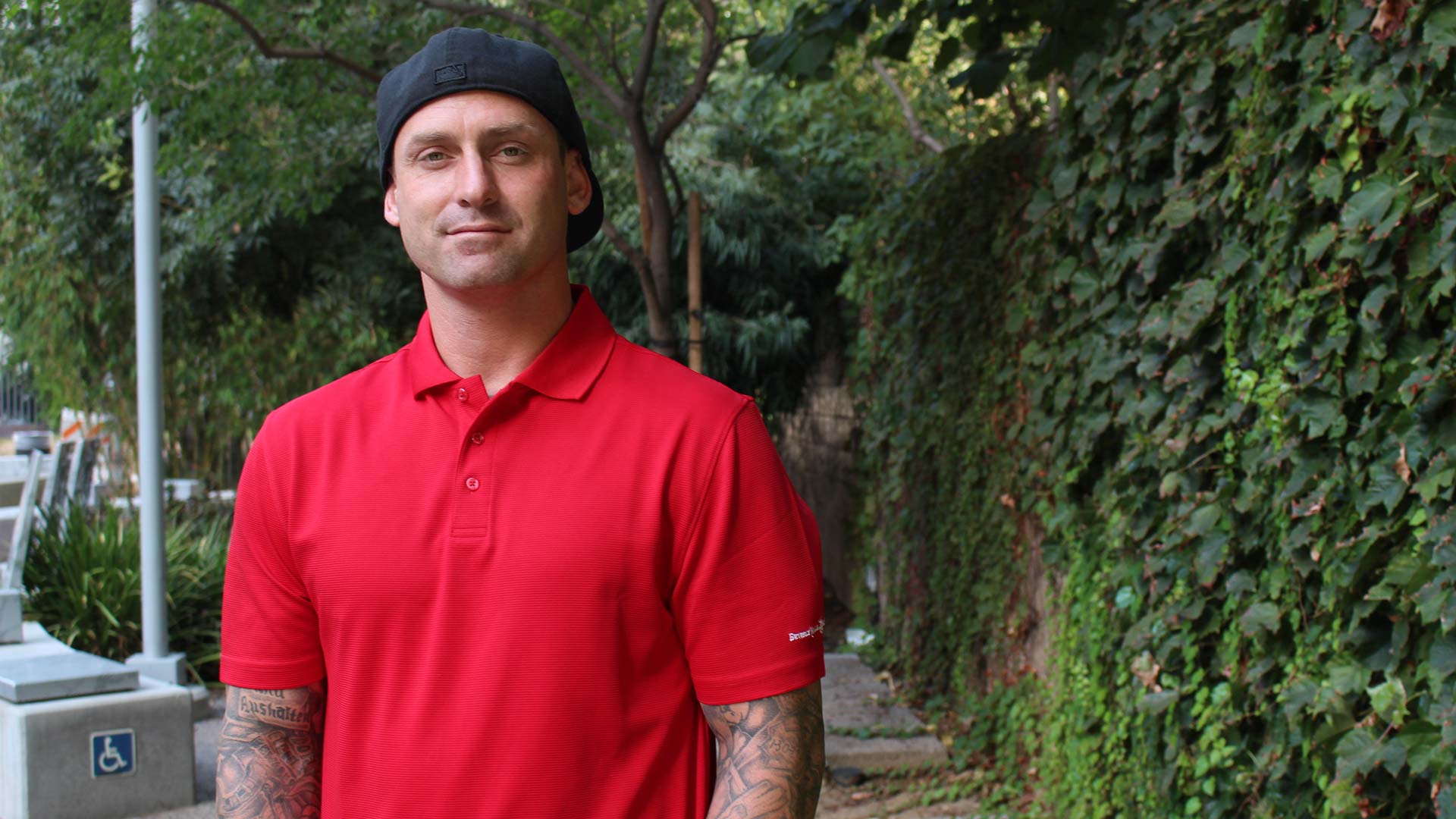Young Graham sounded out the words in a newspaper article he had found in the house. His grandmother sat by his side, gently correcting him as he read aloud. These evening lessons were a daily ritual, and by the time Graham went to Kindergarten, he could already read and write. In the years to come, the bond he shared with his grandmother continued to grow, as she was often the only person he could turn to in times of struggle. “She was an angel,” he shares, “She was never negative, always supportive, and gave unconditional love.”
Despite being placed in classes for gifted learners in school, Graham never felt like he belonged. At home, he experienced abuse, and his parents were often mentally or physically absent due to substance dependence and incarceration. Graham lost faith in himself and turned down a path that led to violence and, ultimately, criminal justice involvement. He was 21 when his grandmother passed away, and that same month, he was sentenced to 15 years in prison. “It felt like a life sentence. I started vigorously pursuing being the best at being the worst.”
But over the years, Graham experienced a gradual shift in the way he perceived his circumstances. “I realized I wasn’t getting anything satisfying out of that negative behavior.” During his remaining years in prison, Graham sought out rehabilitative groups where he could engage in meaningful conversations and find healing.
At 35 years old, with four pairs of pants and four shirts to his name, Graham left behind what felt like a lifetime of confinement. When the drug treatment program into which he was placed referred him to Chrysalis, he was excited to explore new resources that would help him navigate a world that, for him, had changed considerably. He reflects on his first visit to our Orange County center as warm and inviting, “When you’re in prison, you’re referred to as ‘inmate,’ and it doesn’t feel like you’re viewed as a person. I felt like I was a person when I walked into Chrysalis. They welcomed me, and it was really encouraging.”
Graham dove into the program with a fervor to absorb all of the information he could. He worked with a volunteer to build a resume that highlighted his strengths as well as jobs he held while serving time. In practice interviews, Graham learned to manage some of the anxiety he experienced in social situations and established how to speak about his past honestly with potential employers.
Then, through a referral by his Employment Specialist, Graham was hired by Chrysalis to work a transitional job in our social enterprise, Roads, a freeway maintenance business designed to help individuals on active supervision transition back into the workforce. “Make no mistake, it was hard work,” he shares, “But what I got from it is that it is training you on how to deal with your employer and fellow employees, and to work effectively.”
Graham secured his first job with a local moving company after three weeks with Chrysalis Roads, and he didn’t stop there. Driven to work with and empower people, Graham applied to be a Transformational Coach within the California State prison system.
Because of his record, he was immediately rejected.
Ever resilient, and prepared to make a case for himself, Graham requested another meeting to explain exactly why his past made him the perfect candidate – and they were sold. “Chrysalis helped me get what I wanted, not just what I needed,” he shares, “my spirit grows doing this work.”
Today, Graham has housing, a car, and is reunited with his supportive wife and daughter. Graham is changing the lives of men, who like him, are learning to navigate their pathways toward a positive future. And it was all made possible because doors were open to him to find his way – Chrysalis is grateful to be part of the journey.
